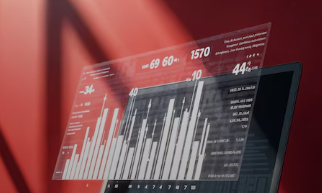Written by: Nitai Sylvetsky
On October 8, 2025, the Senate Judiciary Subcommittee on Intellectual Property held a pivotal hearing on the Patent Eligibility Restoration Act of 2025 (PERA), a bipartisan bill reintroduced by Senators Thom Tillis (R-NC) and Chris Coons (D-DE). The hearing featured testimony from former USPTO Directors, legal scholars, industry representatives, and advocacy groups, highlighting both strong support and notable concerns regarding the bill’s impact on innovation and litigation.
Why This Matters
For years, software-related patents have faced significant eligibility challenges due to judicially created exclusions—particularly the “abstract idea” doctrine stemming from Supreme Court decisions like Alice Corp. v. CLS Bank Int’l, 573 U.S. 208 (2014). These exclusions, which are legally distinct from patent law’s requirements of novelty and nonobviousness, have led to the rejection of many valuable innovations in fintech, healthtech, diagnostics, and AI.
PERA 2025 aims to restore clarity and predictability by:
- Eliminating judicial exceptions such as “abstract ideas” and “laws of nature”
- Reaffirming patent eligibility for any invention that falls within the statutory categories: process, machine, manufacture, or composition of matter
- Introducing clear eligibility exclusions, including:
- Mathematical formulas not integrated into a patent eligible invention
- Mental processes performed solely in the human mind
- Unmodified human genes and natural materials as they exist in nature
- Processes that are primarily economic, financial, business, social, cultural, or artistic in nature
What This Means for You
If enacted, PERA could significantly improve the patent landscape for software and AI innovators by:
- Reducing uncertainty in the examination and litigation process
- Encouraging broader protection for technical and computational innovations
- Strengthening IP portfolios for startups and established tech companies
Key Takeaways from the Hearing
- Former USPTO Directors Andrei Iancu and David Kappos strongly supported PERA, citing the need to restore predictability and competitiveness in U.S. patent law.
- Critics, including representatives from the retail sector, warned that the bill could revive abusive litigation practices if not carefully implemented.
- Lawmakers emphasized the urgency of reform, with Senator Tillis noting his intent to advance the bill before his retirement in 2026.
Next Steps
The bill (S.1546) remains under consideration in the Senate Judiciary Committee. While bipartisan support is evident, further debate and potential amendments are expected before any vote.
Prediction: If momentum continues, meaningful changes for patent practitioners could begin to materialize within 12 to 18 months.
If you have questions about how this may affect your current or future patent filings, feel free to reach out—our team is here to advise.
For further reading you can view the bill text on Congress.gov and the hearing summary on IPWatchdog. A video recording of the entire hearing is also available online at: Hearings to examine the Patent Eligibility Restoration Act, focusing on restoring clarity, certainty, and predictability to the United States patent system. | Congress.gov | Library of Congress



